I am in my early days of my writing, so you are not looking at someone who is a seasoned professional.
I’ll tell you what I am.
I am a quick learner; I chat and make contact very quickly. I am acquisitive of information, always reading, thinking and noticing. In a way, I am always working. What I thought was not possible has turned out to be something rather different. Not easy exactly, but more accessible than I had managed. And I seem to have written a good deal.
In late summer 2015 I sat at the kitchen table and started typing a question. That question became the first line of an autobiographical novel. That first book was published in March 2017. I realise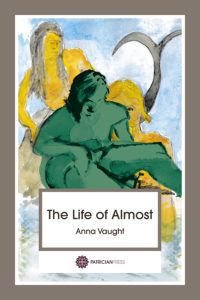 now that twenty months from first line to publication is a bit of a clip, but didn’t know it then because I was so naive. I do think, for what it’s worth, that naivety is underrated. My second book comes out this summer (2018), the third is placed for 2020, and the fourth is going straight to an agent and I want you to cross everything here. I am also pitching something non-fiction collaboratively with a much finer writer than I (if she reads this; don’t argue) and working on pre-publicity for the second book. At last count I have also published two poems, a very short memoir, reviews, features, guest blogs, short stories, and creative non-fiction. Flash fiction is on its way. I think in all I’ve published twenty or so pieces across journals and magazines, web and print. I’m quietly increasing my stock; my ‘profile’. No-one told me to do this. Again, it’s that naivety. I just thought, ‘Give it a go,’ rocked up and started pitching. And it worked. I also found time in that period for some rejections, lost manuscripts, and serious faffing about when second and third books were written to time for someone who then rejected them with a form letter and didn’t invite me to send further work. That set me back – time-wise, mood-wise – but I’m tougher now. And I realise the passion I felt for one of my rejected projects obscured the paucity of its quality. Or marketability. The fact I had no adequate platform. Cave scriptor.
now that twenty months from first line to publication is a bit of a clip, but didn’t know it then because I was so naive. I do think, for what it’s worth, that naivety is underrated. My second book comes out this summer (2018), the third is placed for 2020, and the fourth is going straight to an agent and I want you to cross everything here. I am also pitching something non-fiction collaboratively with a much finer writer than I (if she reads this; don’t argue) and working on pre-publicity for the second book. At last count I have also published two poems, a very short memoir, reviews, features, guest blogs, short stories, and creative non-fiction. Flash fiction is on its way. I think in all I’ve published twenty or so pieces across journals and magazines, web and print. I’m quietly increasing my stock; my ‘profile’. No-one told me to do this. Again, it’s that naivety. I just thought, ‘Give it a go,’ rocked up and started pitching. And it worked. I also found time in that period for some rejections, lost manuscripts, and serious faffing about when second and third books were written to time for someone who then rejected them with a form letter and didn’t invite me to send further work. That set me back – time-wise, mood-wise – but I’m tougher now. And I realise the passion I felt for one of my rejected projects obscured the paucity of its quality. Or marketability. The fact I had no adequate platform. Cave scriptor.
None of this is my day job.
I worry that someone might read what I’ve written and react thusly: ‘Why can’t I get more done?’ Well, that would have been me thinking that a couple of years ago, so let me add the caveat that I am setting down on paper my process only to suggest, because I believe it, that you are always capable of doing more than you think you are. I started late because I lacked so much confidence to begin with and it’s always a battle.
So here’s me.
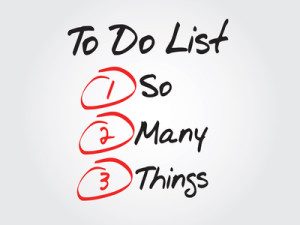 I’ve got three kids and I’m doing KS1 to GCSE year here. I am obliged to do the reading, key words and costume-making that goes with the young school age child; I have to be about for my eldest because have you seen how much stress young people are under with the new strengthened GCSE and all the anxiety engendered by all those (I quote) ‘old gits’ who have foisted Brexit on them? Moreover my other son is dyslexic and he needs support with the written elements of the copious homework these young people are set. I have further responsibility for two more teenagers for whom I advocate. I teach 15-20 hours a week so I don’t work full time – must emphasise that – but I also have, on top of teaching, a couple of volunteer activities. We have no family support or help (I’ll come back to this one in a moment), but we do have pets, school runs, DIY, I don’t have a cleaner and someone’s got to fry bacon! THE POINT IS, I haven’t really got time to write much and yet I have found it is possible. Why? How?
I’ve got three kids and I’m doing KS1 to GCSE year here. I am obliged to do the reading, key words and costume-making that goes with the young school age child; I have to be about for my eldest because have you seen how much stress young people are under with the new strengthened GCSE and all the anxiety engendered by all those (I quote) ‘old gits’ who have foisted Brexit on them? Moreover my other son is dyslexic and he needs support with the written elements of the copious homework these young people are set. I have further responsibility for two more teenagers for whom I advocate. I teach 15-20 hours a week so I don’t work full time – must emphasise that – but I also have, on top of teaching, a couple of volunteer activities. We have no family support or help (I’ll come back to this one in a moment), but we do have pets, school runs, DIY, I don’t have a cleaner and someone’s got to fry bacon! THE POINT IS, I haven’t really got time to write much and yet I have found it is possible. Why? How?
Here come the tips:
- Work backwards from the outcome (which says WRITE BOOK) and don’t fret so much about how you’re going to get there. I was like that with birth plans. ‘Do you want to make a birth plan?’ they said, as my cohort swept by with laminated babykins spreadsheets. ‘Yes,’ said I and wrote, ‘Have baby.’
- Maximise and value the time you have. If I have a burst of energy, I will write a big block but I may do little or nothing in terms of words on a page the next day and I’ve learned not to berate myself for that.
- Being a writer is just as much about writing as it is reading – in bed, in the bath, during the hour on a car trip in which you annotate interesting bits in other books you might want to use or refer to in yours.
- Stretch your arms out to all the wonderful writers and publishers out there. I did, and I have found that my anxiety and self doubt have decreased. And when they appear, I have got much better at self care and treating myself gently.
- Remember, there are elements you simply cannot control. Reviews; sales; visibility of your book; a sick kid; life stuff.
 Let’s get into a bit more detail about how you can start actually implementing these tips:
Let’s get into a bit more detail about how you can start actually implementing these tips:
- Get excited about your idea and start scrawling away on a bit of paper. Bit of planning; whatever works for you. Plan meticulously, or just start writing. I do a mixture of both. And I read, read, read. I no longer worry about the journey. I visualise this book. Pockets of work occur. 5.30 one morning; hiding in the shed; scribbling in a notebook on the bus. If you were to write just a little every day, or manage a few bursts over a week, with thinking and mulling time in between and keep at it, at some point a first draft of a book is going to emerge. And then, with your Frankendraft, your shit first draft, comes the real EEEK. No: don’t be scared, because look what you did! You made a thing. You have something to work with. Don’t wait for ideal conditions. Don’t hang around waiting for your muse to descend. When you have more time, more money, some sort of garden studio or workshop. Or a perfect burst of inspiration. I write on a laptop at the kitchen table. Neighbours come in because they’ve run out of tea; kids ransack cupboards. Find what you need, of course, but don’t assume you need a writerly tower. I find now that I can have the oven on, the kids hollering, ‘Mum have you seen…?’, a cat in my lap or possibly a fight and a small explosion next to me. I could have waited for quieter times, but working as I do, imperfectly, with not much time, forces the words on to the page. The writer and lawyer Anna Mazzola just said on Twitter, under the heading Tips for building up writing confidence: 1. Set a target or deadline so you have to write despite self doubt. Yes – that works too. I promise you.
- One week I wrote about 50 words; another week I wrote 30,000. Yep. Trust in yourself, I say. This can happen. Drought and downpour. I like the tag started by writer and academic Jenn Ashworth on Twitter, #100daysofwriting. It’s not a hardcore thing, but a gentle supportive nudge, hug, whatever. It asks, ‘how did you get on, love?’ It’s not a sprint, after all. It is possible to be stimulated and comforted at the same time. If you’re feeling negative and exhausted you could take a break, but suck it and see. Suddenly energised by an idea in the early hours? You could always…get up very early and write and just be a bit knackered for the rest of the day. Have a notebook with you AT ALL TIMES.
- Value your work. Trust in it. And in your ability to solve problems and force through a line of plot or, better still, have it mend serendipitously in front of your very eyes. As I was saying, yesterday I had a car trip and a book. I was underlining lines of 17th-century poetry which are related to what I’m covering in my fourth book. Now, potentially, this book is a source of anxiety because I have taken on a massive subject. And yet…just that little bit of reading and pondering yesterday and I began to see things coalesce; join up behind my eyes. Productive work, then. When the kids went off for ice cream, I snatched back twenty minutes and looked over what I had underlined, saw also a footnote and, in a flash, realised that I had begun to solve the dilemma in this book – which is essentially one of dates and geography. You need to have faith that these kinds of things, eyes open, will happen. You are just as much at work in a bubble bath, mulling over ideas, as you are typing away, foaming at the mouth. I stand by that, anyway.
- Right then. Self doubt. Anxiety. Really, 1, 2 and 3 all stem from management of such. I have a messy background. You can read about that in my first book, if you want. Albert Camus was my imaginary best friend. Yep. I was not raised to value myself or my activity; I was raised to think of myself of an abhorrence. I am sorry to be so frank, but the NHS and I have spent a lot of time hanging out and it might help someone reading this to think, ‘That’s me. I battle; I battled. I’ll never be free of this.’ I am here to tell you that perhaps you will, but even if not, reach out and press on.
 When Aki Schilz, TLC’s Director, was asking for sponsored tickets for this big Get a Job in Publishing Event, I wanted to sponsor one and said that, if it were possible, I’d love to sponsor a ticket for someone who was coping with mental health problems and who also, perhaps, had responsibilities as a carer, because I manage the former and was the latter through my teens. I know what it is to have your creativity and working life abrupted by really difficult stuff and also face stigma because of it. This is, incidentally, why I didn’t start writing earlier. Because I thought it was for other people. It isn’t. It’s for you. I decided it was for me. I took up my monsters and deployed them. I made them work for me and I insisted that I had a ball of energy to burn in the process. You can do the same. If you get told you are the wrong, age, colour, class, push back. Push back. A few minutes on Twitter will show you the wonderful people who are doing just that.
When Aki Schilz, TLC’s Director, was asking for sponsored tickets for this big Get a Job in Publishing Event, I wanted to sponsor one and said that, if it were possible, I’d love to sponsor a ticket for someone who was coping with mental health problems and who also, perhaps, had responsibilities as a carer, because I manage the former and was the latter through my teens. I know what it is to have your creativity and working life abrupted by really difficult stuff and also face stigma because of it. This is, incidentally, why I didn’t start writing earlier. Because I thought it was for other people. It isn’t. It’s for you. I decided it was for me. I took up my monsters and deployed them. I made them work for me and I insisted that I had a ball of energy to burn in the process. You can do the same. If you get told you are the wrong, age, colour, class, push back. Push back. A few minutes on Twitter will show you the wonderful people who are doing just that.
Once you start getting involved in social media chat about writing, talking to people, offering to do the odd free piece of work (go careful that you don’t exhaust yourself, though), you’ll find that confidence increases. Fake confidence if you don’t have it. Really. Be kind to yourself. I’ve found the camaraderie around the small presses is very rewarding; likewise, you can make or join a writers’ group or simply let your tribe (yes: you’ve got to have a tribe) evolve through Twitter. I could embarrass a lot of people here by naming them, but essentially find people in your immediate community and your virtual one who cheerlead and understand and give it back to them in spades.
Look at this from new writer Mandy Preville-Findlay just now: The one thing you have all taught me since starting out last year is to trust my gut. If the desire is there to write, don’t suppress it, just let it flow. Anything written down is a start. We have chatted together on Twitter about projects. It just evolved naturally.
This is so important I think echoed Hayley Webster, very established writer and one of the kindest voices you could hope to hear. She goes on, Have a person/people who know and trust your work, and who you feel the same about… and don’t be afraid to ask for reassurance, or keep reminding each other to keep going.
Carmen Marcus, currently doing a sterling job in encouraging the voices of working class writers, adds, After various arguments with myself about what might work, what I’m allowed to do, what other writers have done, I remind myself that I don’t need permission. And there’s jolly Molly Aitken: Nothing’s better at quieting doubt than my fabulous writers’ group. We cheer each other on to keep writing and keep showing up. Fran Harvey tells me that, It’s intensely frustrating, during confident times, to look at all the ways I’ve undermined myself through self-doubt. Never been able to manage it, except to grab opportunities when I DO feel confident & refuse to renege on them when the doubt returns.
Teika Bellamy is both writer and publisher and she says, Continuing to show up to ‘do the work’ day in day out is a good way to put the self-doubt on mute. Also, a trusted supporter and/or knowledgeable mentor can make the world of difference and then my own raven-haired twinion, author and academic Heidi James writes, I give myself permission to make a mess… that I can’t edit/rewrite what isn’t there; so make a mess. Play… and gag that spiteful internal critic!
 Do some nice stuff for other people – tweet about their projects, get involved if you have a little time. For me, this has meant writing reviews of projects I wanted to champion both for their excellence but also their humanity, their kindness. I started a creative writing bursary; I have a work experience student; I’ve contributed to Kickstarter projects. This energy: keep it moving. It buoys you up, protects and nourishes you – your creativity and your mental health – and it does the same for those around you. I did not think that publishers would take me on, talk to me; that agents would ask me over for coffee. But why not? By the same token, I have learned by hard experience that some people are, for whatever reason, really negative. ‘You won’t have time.’ ‘You’ll never get that done.’ IN YOUR FACE, say I (now that I can say that!) That negative voice might, I’m afraid, turn out to be your publisher. It might come from your mates. I mean, my own extended family refer to my work only as my ‘ramblings.’ But that’s why you need the tribe I mentioned. You have to refuse to let the negative voice be coming from you. Too old. Too young. Not educated enough. Nonsense. Whose is that voice in your head saying you can’t? Is it your own?
Do some nice stuff for other people – tweet about their projects, get involved if you have a little time. For me, this has meant writing reviews of projects I wanted to champion both for their excellence but also their humanity, their kindness. I started a creative writing bursary; I have a work experience student; I’ve contributed to Kickstarter projects. This energy: keep it moving. It buoys you up, protects and nourishes you – your creativity and your mental health – and it does the same for those around you. I did not think that publishers would take me on, talk to me; that agents would ask me over for coffee. But why not? By the same token, I have learned by hard experience that some people are, for whatever reason, really negative. ‘You won’t have time.’ ‘You’ll never get that done.’ IN YOUR FACE, say I (now that I can say that!) That negative voice might, I’m afraid, turn out to be your publisher. It might come from your mates. I mean, my own extended family refer to my work only as my ‘ramblings.’ But that’s why you need the tribe I mentioned. You have to refuse to let the negative voice be coming from you. Too old. Too young. Not educated enough. Nonsense. Whose is that voice in your head saying you can’t? Is it your own?
And finally, while we are talking about managing self doubt and quelling panic, I think there’s a case to be made for not eliminating self doubt altogether. Because what kind of writer would that make you, if you didn’t feel doubt, if you were too sure? It’s a bit Trumpian. Being too sure, too certain, is ignorant and it destroys stuff. Self doubt is also a brake and cause for reflection. Sometimes, it’s necessary. It’s just important – very important – to remember not to let it become corrosive.



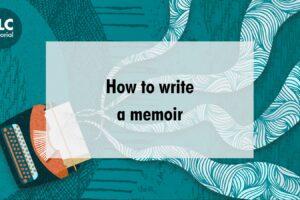
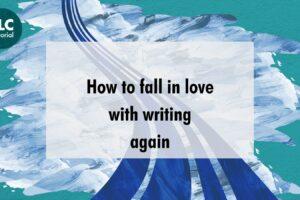
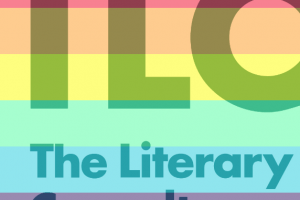
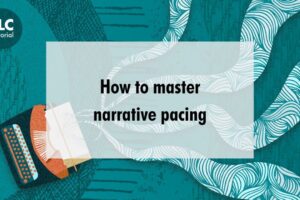



5 responses
Inspiring and affirming. Thank you!
thank you Anna – i’ve not written a word for a week.i’ve read alot, had to double my Sertraline, and it rained and rained – not good weather for a mobility scooter. i had two rejections for my first novel – to add to the five i’ve already had and was not long-listed for a competition i was long-listed for last year. yes, i keep saying, i won two short story competitions last year and was short-listed for two, so – what am i complaing about?? who knows. The competitions are deadlines. so i should get on with them shouldn’t i? a year ago i had surgery and kept telling the surgeon ‘i have a novel to finish’ and he kept me alive – incidentally, i started writing fiction three years ago when i was sixty-nine – it’s never too late! is it? feel much better for reading your piece…
Thanks for reassurance and inspiration
Hey all – thank you for these comments x A number of people have written to me about this blog post – here’s something that might be of interest….https://twitter.com/BookwormVaught/status/985131073595170816?s=20 Anna
What a great tips! Thanks. That’s really sad that I didn’t find this article a bit earlier.
Now I’m working as a writer, and I has study at the third year of university. Now I’m trying to write my novel, and because of my work I don’t have enough time for my homework. And my math teacher said that I’ll get expelled from university if I didn’t do homework that i was needed to do over this semester. Thanks to google power I’ve find writing service that helped me to solve this problem.
But maybe if I’ve read this article a bit earlier, I could share my time between my job and university.
Thanks again for this article, I’ll try to pay close attention to your advises.